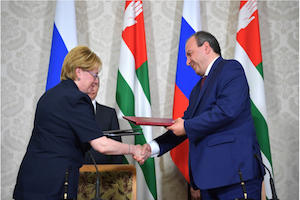Russia and Abkhazia's Presidential Elections
By Tomáš Baranec
On March 1, 2025, the second round of the de facto presidential elections took place in Abkhazia. The incumbent de facto President, Badra Gunba, secured 55.66 percent of the vote, defeating opposition candidate Adgur Ardzinba, who received 42.25 percent. The 2025 elections were marked by two notable features. First, Russia directly intervened in the electoral process for the first time since the 2004 presidential elections, during which Moscow openly supported Raul Khajimba. Second, a political faction recently ousted through mass protests returned to power through electoral means. Both developments may have significant consequences for Abkhazia’s political trajectory.
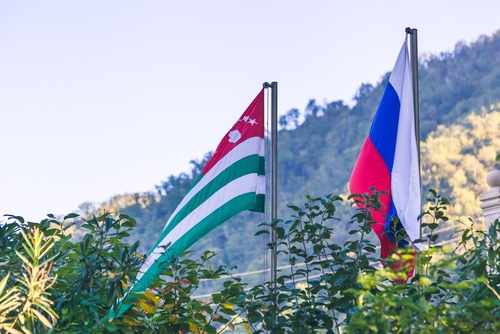
Photo source: Andrey Danilov
BACKGROUND: The latter half of 2024 in Abkhazia was characterized by widespread public mobilization against the proposed so-called investment agreement with Russia. Critics expressed concern that the agreement would strip the region of its remaining de facto sovereignty and potentially threaten the precarious demographic majority held by ethnic Abkhazians. These tensions culminated in an assault on the presidential palace in Sukhumi and the subsequent resignation of de facto President Aslan Bzhania and de facto Prime Minister Alexander Ankvab on November 19.
Following the first round of the presidential elections held on February 15, 2025, two traditional political factions competed for power. Gunba represented the interests of the Ankvabist bloc (United Abkhazia), aligned with Alexander Ankvab and the ousted president Aslan Bzhania. Adgur Ardzinba of the Abkhazian National Movement led the opposing group—the Khajimbists. Initially, Ardzinba received support from Kan Kvarchia, chairman of the Aidgylara movement, and Leuan Mikaa, chairman of the Committee for the Protection of Abkhazia’s Sovereignty. However, both opposition figures ultimately refrained from actively participating in Ardzinba’s election campaign.
The catalyst for the early elections was the "unfinished revolution" of November 2024, during which President Bzhania and Prime Minister Ankvab were compelled to resign, leading to the abandonment of the highly unpopular investment agreement with Russia.
Gunba, as a representative of the recently ousted political faction, was initially expected to enter the early elections as a marginal contender. Despite the apparent achievements of the revolution, it remained incomplete. Prior to the elections, Ankvab’s faction continued to control all key ministries, administrative apparatuses, and the media landscape.
The Ankvab faction also secured a strategic advantage during the election campaign. Employing black PR tactics, they compelled Ardzinba’s campaign team to focus their efforts on countering numerous accusations and rumors. Consequently, the opposition leader had limited opportunity to engage with issues that were critical and sensitive for the Ankvab group, including cryptocurrency mining, the investment agreement, and the deterioration of the energy infrastructure.
The Ankvab faction structured its campaign around two principal narratives. In the first, Ardzinba was portrayed as anti-Russian, implying that only Gunba could guarantee the continuation of Russian support. In the second, Ardzinba was depicted as a proponent of Turkish interests, thereby suggesting that the opposition harbors hostility toward the Armenian community in Abkhazia.
By maintaining control even after the revolution, Ankvab’s supporters were able to utilize the local media’s propaganda apparatus and deploy the standard array of administrative resources in the lead-up to the elections.
However, the Kremlin’s overt intervention in support of Gunba introduced a new variable into an otherwise conventional electoral equation. In addition to supplying Abkhazia with so-called humanitarian gas at a reduced rate, senior Kremlin officials publicly aligned themselves with the candidate representing the Ankvab faction. Simultaneously, Russian media at all levels, along with coordinated bot networks on social media, intensified the black PR campaign against Ardzinba and the opposition with unprecedented intensity. Within this framework, the revocation of Russian citizenship from Mikaa and Kvarchia at the end of January functioned as a broader signal of warning to the entire Abkhazian populace.
IMPLICATIONS: The Ankvab faction secured electoral victory shortly before the plebiscite through the implementation of several active measures. At the last moment, it blocked the establishment of a polling station in Turkey, out of concerns that the diaspora electorate there might favor the opposition. Conversely, reports of significant, organized voter fraud surfaced at polling stations in Moscow and Cherkessk. Additionally, allegations emerged that Abkhaz authorities were distributing driver’s licenses in exchange for votes cast in favor of Gunba.
However, none of these measures alone guaranteed a seamless victory. The decisive factor was a targeted campaign directed at the Armenian minority, bolstered by substantial support from Russian media and the influential Armenian diaspora based in Sochi. For the first time, a majority of this demographic explicitly endorsed a single candidate—Gunba. Given that ethnic Armenians constitute approximately 17 percent of the population, according to local expert Said Gezerdava, their unified support proved pivotal in enabling the Ankvab faction to retain political control.
Despite achieving a lead of over 13 percent against the opposition candidate, the position of the Ankvab faction remains precarious, particularly considering probable expectations from Moscow. A victory by the Khajimba faction would have brought minimal change for Russia regarding Abkhazia, as one pro-Russian bloc would have merely supplanted another. The intensity with which the Kremlin committed to overtly supporting Gunba—even at the expense of discrediting the opposition and estranging segments of the local populace—indicates that it anticipates reciprocal concessions.
Moscow’s demands are well known. The Kremlin outlined them in the so-called protocol of August 19, calling on Sukhumi to lift restrictions preventing Russian citizens from purchasing real estate in Abkhazia and to adopt a commercial pricing model for electricity supply. An additional, longstanding demand includes the privatization of Abkhazia’s energy sector in favor of Russian enterprises.
In such a scenario, the outcome of the presidential election would merely represent a return to the political deadlock of summer 2024, which culminated in Bzhania’s downfall only a few months later. Given this reset, it is unreasonable to expect that identical measures, implemented under the same conditions, will yield a different result.
Therefore, if Russia and the de facto administration under Gunba aim to produce a different outcome, they will be compelled to fundamentally alter either the basic conditions or their approach.
Altering the terms in this context effectively entails changing public opinion within Abkhazian society regarding the agreements, which are widely perceived as posing a threat to the survival of the Abkhazian nation. A more conciliatory final version of the agreement, accompanied by a comprehensive and persuasive information campaign, could potentially lessen societal resistance. However, this would necessitate significant concessions from oligarchic groups in Russia closely affiliated with the Kremlin. A shift in approach would likely involve heightened repression, relying on coercion and intimidation to impose compliance amid sustained and widespread local opposition.
Events following Gunba’s electoral victory quickly revealed that the Kremlin is amenable to this scenario. On March 7, prominent Abkhazian journalist Inal Khashig was added to Russia’s list of foreign agents. That Khashig’s case was not an isolated incident, but indicative of a broader trend became evident two weeks later, when two other well-known journalists, Izida Chania and Nizifa Arshba, were similarly designated as foreign agents.
CONCLUSION: For Russia, the 2025 Abkhazian presidential election was less about preserving regional influence and more about securing the passage of a widely unpopular investment agreement. Two key factors support this interpretation: the unprecedented extent to which the Kremlin committed its support to Gunba, despite the fact that an Ardzinba victory posed no real threat to its position; and the revocation of citizenship from Kvarchia and Mikaa—not for their early endorsement of Ardzinba, but for their involvement in the events of November 2024.
Gunba’s victory, secured with Russian support, is likely to result in three key developments: increased direct control by Moscow over the region (with both Bzhania and Ankvab reportedly being gradually sidelined from power, according to Gezerdava); the advancement of Moscow’s interests through the use of repressive measures; and heightened tensions between ethnic Abkhazians and Armenians.
Drawing on the experience of recent years, it is reasonable to expect that local resistance to Russia’s unpopular demands will persist. However, the effectiveness of this resistance will largely depend on the extent to which the new repressive strategy impacts local elites, journalists, and activists. A key early indicator of future developments will be whether self-censorship emerges among local journalists following the designation of three of the most prominent media figures as foreign agents.
AUTHOR BIO: Tomáš Baranec is the Founder and Executive Director of the Centre for Black Sea Studies as well as a Research Fellow and Head of the Caucasus Program of the Slovak think tank Strategic Analysis. He worked as a field researcher on the Georgian-Ossetian ABL. Tomas studied Balkan, Central European and Eurasian Studies at Charles University in Prague.
Ochamchira: Russia’s New Naval Base In The Caucasus
By Stephen Blank
November 15, 2023
Russia has recently announced that it has obtained a new naval base on the Black Sea at Ochamchira. The base is located in Northwestern Georgia in the Abkhazian territory Russia conquered from Georgia in 2008, close to several other Russian army bases there and in neighboring South Ossetia, another region conquered in the 2008 war. This new base represents another example of Russian imperialism in progress. This imperialism is the same force that drove and now drives Russia’s ongoing aggression against Ukraine.
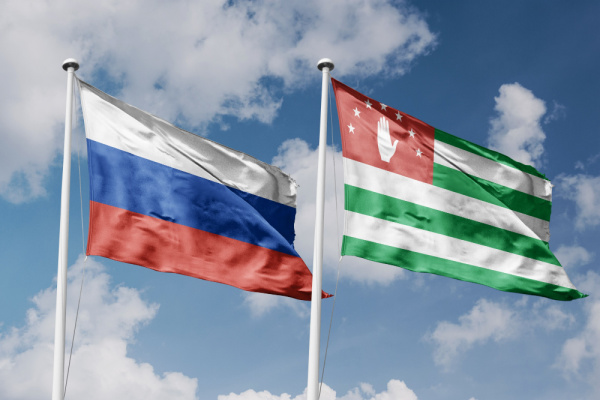
Abkhazia and the Pitsunda Issue – Causes and Possible Consequences
By Tomáš Baranec
November 18, 2022
Abkhazia’s de facto authorities have agreed with Moscow that Russia will lease 186 hectares of land and 115 hectares of the sea in the city Pitsunda (Bichvinta in Georgian) for a period of 49 years. During the period in question, Russia is to receive direct ownership of leased buildings and infrastructure as well as lands that in the past constituted the private recreation complex of former Soviet leader Nikita Khrushchev. The deal, which might have severe consequences for the already limited factual sovereignty of the de facto government in Sokhumi, was met by protests from local activists and opposition figures.
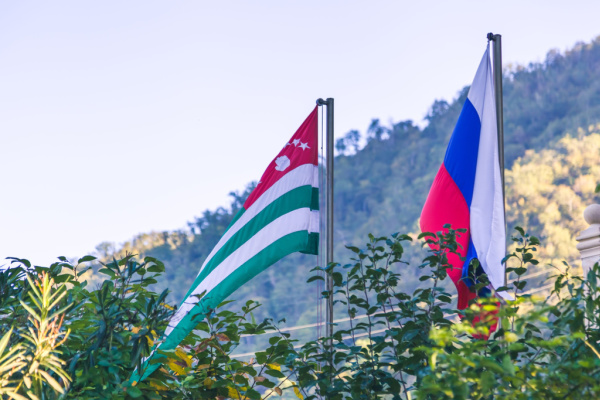
Re-opening Abkhazia's Border with Russia: Economic Opportunity or Epidemiological Risk?
By Tomas Baranec
September 28, 2020, the CACI Analyst
On August 1, 2020, Sukhumi reopened its border with Russia. The border had been closed since early April to halt the spread of the new coronavirus SARS-CoV-2. The decision was driven by Abkhazia’s economic concerns, given the region’s heavy dependence on the flow of Russian tourists. However, the development of the epidemiological situation in Abkhazia in the first three weeks after the border reopened indicated that the combination of a massive influx of tourists from the world’s third most infected country and a lack of medical infrastructure in the region could have a negative impact overriding any economic gains from tourism.
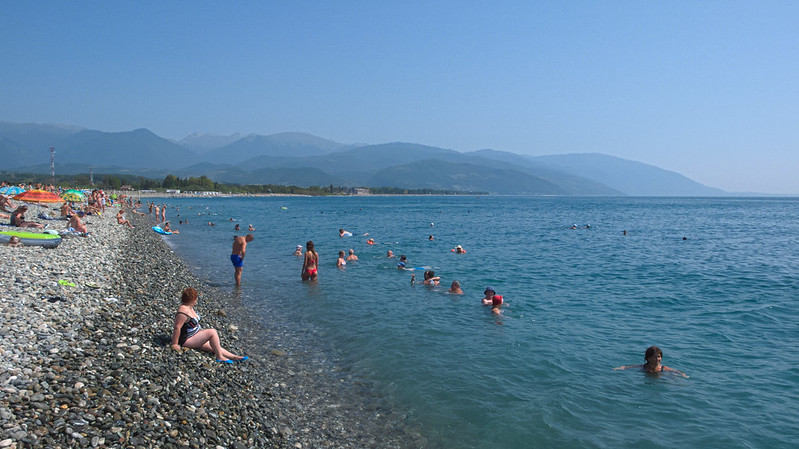
Abkhazia's Diplomacy: Foreign Relations Beyond Russia
By Andreas Pacher
October 2, 2017, the CACI Analyst
70 percent of Abkhazia’s diplomatic notes do not address its patron state Russia, but are sent to the few other states that have recognized its independence. It is surprising that countries like Nauru or Vanuatu obtain so much sustained attention from Abkhazia. The contested territory is usually perceived to rely solely on Russia. However, by exercising courtesy towards all partner countries, Abkhazia wants to present itself as a polity that is capable of behaving as a real sovereign state within the international community, projecting the image of normalized statehood that the region seeks to attain. Any attempts to thoroughly understand post-Soviet breakaway territories should pay closer attention to their external ties beyond their patron.
